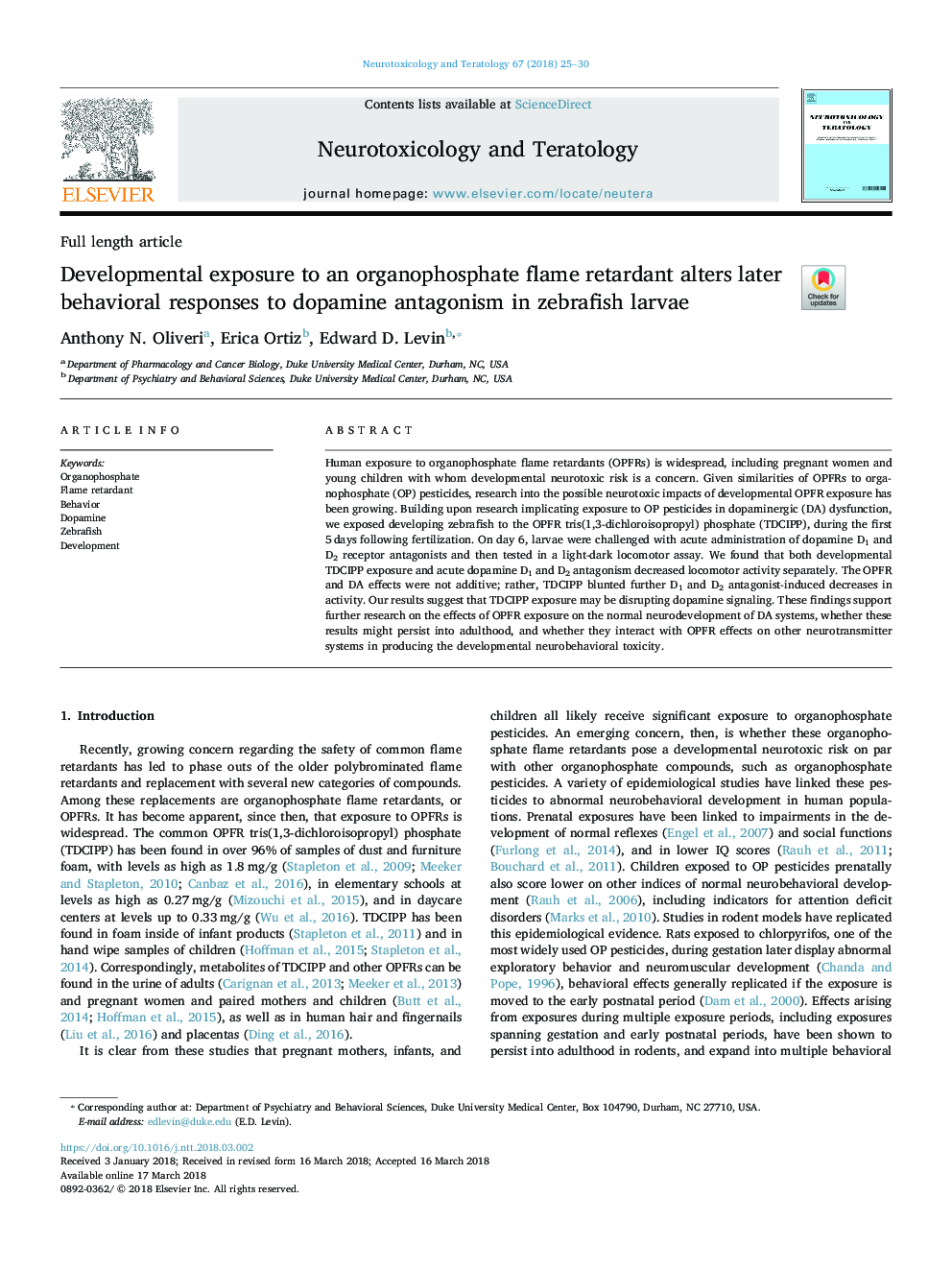| Article ID | Journal | Published Year | Pages | File Type |
|---|---|---|---|---|
| 8550570 | Neurotoxicology and Teratology | 2018 | 6 Pages |
Abstract
Human exposure to organophosphate flame retardants (OPFRs) is widespread, including pregnant women and young children with whom developmental neurotoxic risk is a concern. Given similarities of OPFRs to organophosphate (OP) pesticides, research into the possible neurotoxic impacts of developmental OPFR exposure has been growing. Building upon research implicating exposure to OP pesticides in dopaminergic (DA) dysfunction, we exposed developing zebrafish to the OPFR tris(1,3-dichloroisopropyl) phosphate (TDCIPP), during the first 5â¯days following fertilization. On day 6, larvae were challenged with acute administration of dopamine D1 and D2 receptor antagonists and then tested in a light-dark locomotor assay. We found that both developmental TDCIPP exposure and acute dopamine D1 and D2 antagonism decreased locomotor activity separately. The OPFR and DA effects were not additive; rather, TDCIPP blunted further D1 and D2 antagonist-induced decreases in activity. Our results suggest that TDCIPP exposure may be disrupting dopamine signaling. These findings support further research on the effects of OPFR exposure on the normal neurodevelopment of DA systems, whether these results might persist into adulthood, and whether they interact with OPFR effects on other neurotransmitter systems in producing the developmental neurobehavioral toxicity.
Related Topics
Life Sciences
Environmental Science
Health, Toxicology and Mutagenesis
Authors
Anthony N. Oliveri, Erica Ortiz, Edward D. Levin,
